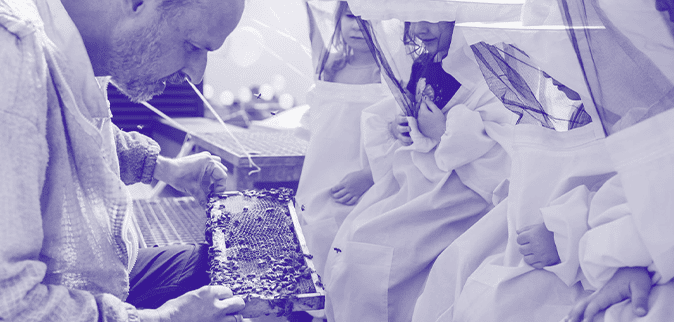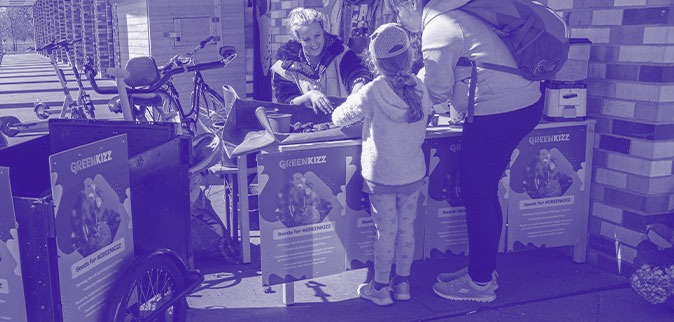Beezdorf
One of the most powerful solutions to addressing climate change lies in the food we eat. Educating young people is one of the most sustainable ways of doing that. Less than 25% of children receive “food education” at school and 83% of those that do receive food education are more likely to eat fresh unprocessed foods. One third of the fresh, unprocessed foods available to us in Europe are pollinated by bees, and thousands of other flying insects.
The Beezdorf initiative implements events, activities and competitions in OPEN’s retail centres and the local schools within the catchment area to promote and educate local school children about healthy and sustainable food production and supply, as well as the importance of bees for biodiversity.

The Beezdorf Kitchen
The Beezdorf Kitchen, launching in 2023 will strive to engage and educate local school children about the benefits of sustainable farming, growing your own food, healthy eating, and cooking. It will provide information days with local nutritionists, cooks, and farmers as well as visits to the beehives while co-ordinating with the retail centre tenants, local charities and Berliner Tafel e.V., a non-profit association dedicated to providing food to people in need.
Greenkizz
The Greenkizz initiative focuses on the promotion and education of sustainable environmental activities in the areas around OPEN’s retail centres, working together with local authorities, communities, and regional providers.
Under the Greenkizz brand some of the activities that have been implemented include a weekly rubbish collection group which collects c. 0.5 tonnes of waste a week. Since the start of the project almost 20 tonnes of rubbish have been collected so far.
Seedbombing and rewilding days in conjunction with local schools also took place in 2022 with 240kg of native wildflower seeds sown.
Additionally, in light of the energy crisis, Greenkizz worked with OPEN’s retail centres to reduce the number of Christmas lights on display as well as the length of time they are lit, saving c. 16.8 tonnes of carbon emissions. The financial savings related to this reduction have been donated to regional Tafel food bank associations.

CONNECT
CONNECT WITH US
Follow us on LinkedIn, Vimeo or join our mailing list to stay up to date with industry news.


